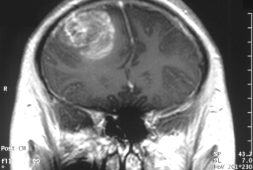
A study has found how reduced oxygen supply to tissues could be somewhat responsible to a age-related physical and cognitive deterioration. There is a receptor in the membrane of the red blood cells that are known to boost the release of oxygen from hemoglobin when in high altitudes.
A brand new study done on mice found that the same receptor in the membrane reduced cognitive decline and hearing loss that is known to come with aging by bettering the amount of oxygen supplied to the tissues. The hope is that this revelation will help create future targets for new potential anti-aging drugs.
In the United States, between the years of 1960 to 2015, the average life expectancy at birth went up by almost a decade from 70 years to 79 years in age. This average life expectancy is also anticipated to rise even more in the next decades.
Although this is a reflection of just how successful modern medicine has been over the past few decades, the implication of this is that with an increase in age also comes the physical and cognitive deterioration that comes with normal aging.
Recently, what has become a priority is finding ways to help people age better, and not just live longer. One way to improve the way people age is by understanding how aging occurs when the supply of oxygen to the tissues also lessens. What the researchers hypothesize is that when the oxygen supply decreases, it can trigger immune changes that further chronic inflammation, which is a condition that is linked to ‘almost all conditions of old age.’
These common conditions of old age, also known as “inflammaging,” often have possible consequences such as hearing loss and cognitive decline.
Yet, there is evidence that shows how improving the oxygen supply can possibly reverse certain cellular signs of aging. In fact, one small study saw that doing hyperbaric oxygen therapy, which is a form of treatment that includes what is considered almost pure oxygen, which seems to refresh immune cells in older adults.
Meanwhile, the results from another study saw how red blood cells responded to ‘low-oxygen conditions of high altitudes’ by simply increasing the amount of oxygen they release or supply to the tissues. This is done through ‘increased signaling by a receptor in their membrane,’ which is called the adenosine receptor A2B or ADORA2B. This receptor bolsters the way hemoglobin releases oxygen.
Such neurodegenerative conditions, like Alzheimer’s Disease, as well as aging in general, is linked to ‘reduced activity in the same metabolic pathway.’
The research in mice, which was led by the University of Texas McGovern Medical School in Houston, found that ADORA2B has managed to lessen the effects of aging by upping the oxygen supply to the tissues.
Although simply in theory, a drug that manages to increase the activity in this pathway could also help fight any age-related declines.
Lead study author, Dr. Yang Xia, shared with Medical News Today (MNT), “So far, there is no such drug available.”
But, she also said the discovery of the use of hyperbaric oxygen treatment might truly aid in the reversal of certain effects of aging on human blood cells. Dr. Xia adds, “Our finding immediately highlights that enhancing O2 [oxygen] delivery mediated by ADORA2B signaling is likely a new rejuvenating approach.”
The research study has been published I the PLOS Biology journal.
Looking Into Accelerated Aging
When scientists studied mice that were genetically engineered to lack ADORA2B in their red blood cells’ membranes, what they found is that the mice looked as if they aged at a younger age than normal mice usually do. They also observed steeper declines in their memory, hearing abilities, and spatial learning.
On the mice’s cellular levels, the rodents had signs of inflammaging, such as ‘increased production of pro-inflammatory cytokines, or signaling molecules that encourage inflammation.’
According to Dr. Xia, “Our findings reveal that the red blood cell ADORA2B signaling cascade combats early onset of age-related decline in cognition, memory and hearing by promoting oxygen delivery in mice and immediately highlight multiple new rejuvenating targets.”
Yet there is still more research that needs to be done to figure out whether ADORA2B levels do indeed go down with age in normal mice, as well as if drugs that activate the ADORA2B pathway can also slow down any age-related cognition or loss of hearing.
Although there is none just yet, studies in humans are still being considered. As explained to MNT, “We plan to validate our mouse finding in humans in the near future.”
One main limitation of a study that looks at aging is the fact that doing experiments on animals like mice or fruit flies is that their average life span is much shorter than humans. Plus, humans have already developed and adapted throughout evolution to live longer than animals, which is also why finding further means to long and healthy life spans could also be quite limited.



